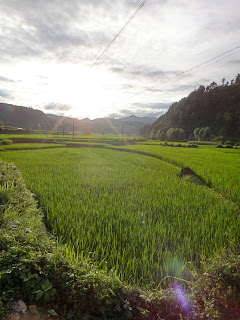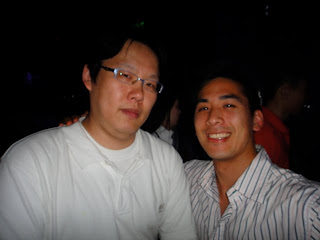Hence the need for agricultural cooperatives, which would allow farmers to band together, thus giving them greater freedom in negotiating prices with their sources, cutting their costs by making bulk purchases, and allowing them to give a coherent, consistent message in their marketing efforts.
Of course, Chairman Mao tried this a few decades ago. After all, the way he came to power was taking land from the wealthy and promising it to the peasants in the countryside. The catch with agricultural co-ops, however, is that they are run most effectively when they are kept private. The government really shouldn’t be too involved in the operation of these co-ops, after all, there is that bit of conflict of interest. Naturally, the government would not be good at advocating on behalf of farmers in the face of corporations (who pay the most taxes), and besides, the private sector tends to do things much more efficiently than the public sector.
Herein lies the contradiction. The Chinese government tends to oppose any private effort by citizens (i.e. unions, co-ops) that would create a collective power outside of the government’s reaches. But the core of a successful cooperative is an independent nature, so how does the government adjust for this?
Currently, it doesn’t. The government essentially tells farmers what to grow, regardless of what may be most useful for the farmer and his land. The government will pay the farmer for his output, and perhaps tack on a slight subsidy. The underlying result is that quality is so-so (after all, the government officials themselves are often evaluated based on output, versus quality), crops are rushed, and the land isn’t put to its most effective use. At the end of the day, the farmers still don’t make enough to live in the land (unless they own lots of it and can hire other farmers to work it), so they send their best and brightest to the cities to find work.
The Story of Mr. Chen

I was introduced to Mr. and Mrs. Chen by Xiaojian, my project manager at the University of Michigan. Mr. and Mrs. are both from Guiyang and own Fenglin Trade Co., based in Fenglin County, Guizhou. Both Mr. and Mrs. Chen are descended from a long-line of high-ranking government officials. They are savvy and well-to-do, having made their fortune already in real estate. Though Mr. Chen could’ve easily settled into an easy retirement, he opted instead to take a sizeable chunk of his fortune to follow his passion- helping farmers to improve their lifestyles by growing quality organic tea.
Despite not having a background in farming or agriculture, with the help of various local experts and books, Mr. Chen learned the trade along the way. Using his own money, Mr. Chen purchased enough land to cover 5 villages and 2 town-ships. He is very thorough and unique in his approach. Since he is able to control costs and production, he ensures that no corners are cut. As such, his tea has passed all local organic certifications, while his local competitors have not. As a result of his high-quality production methods, as well as fair wages paid to the farmers, the cost of his tea is also high.
He owns his own factory and plant, employing approximately 700+ farmers (not full time) and a staff of at least 20-30 employees. His company is well-versed in the growing and processing of tea, and he has numerous local government connections to assist him. Profits are shared with the farmers, and he estimates that their average salaries have increased by approximately 50%, which allows them to remain with their families in the rural countryside. His greatest challenge currently lies in the marketing, promotion, and sale of tea.
We believe that his tea has great potential in the U.S. organic market. I will blog more about this at a future entry.
Below are a videos taken with from Mr. Chen:
(Note: translations available at a later date)
(Note: translations available at a later date)





















